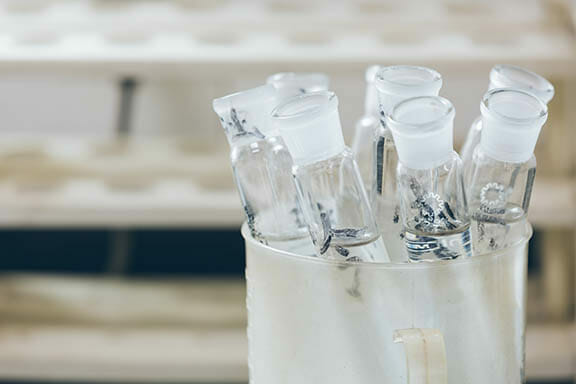GHB/GBL addiction is becoming very common. GHB (Gamma-Hydroxybutyrate) is an anaesthetic which was first developed for medical purposes. It was used as a pre-medication to help patients sleep before surgery and for the treatment of sleep disorders. It takes the form of a white powder or a clear liquid. GBL (Gamma-Butyrolactone) is a similar substance which converts to GHB when it enters the body.

GHB and GBL are depressant drugs which produce a mild ‘high’ in smaller doses and ‘sedation’ in higher doses. Users of GHB/GBL report that the drugs make them feel euphoric, with a loss of inhibitions, increased confidence and higher libido. These effects start after about 10 minutes to an hour and can last for up to seven hours. Some people liken the experience to taking ecstasy, although most users report that the experience is very similar to being drunk on alcohol. For this reason, it is especially dangerous when mixed with alcohol.
GHB and GBL are very dangerous drugs which are highly addictive and can cause overdose, as the difference in a recreational dose and overdose is really small. GHB is also used as a ‘date rape’ drug and through helping users of GHB we have found that people can become physically dependent on the drug and need a medically assisted detox to safely stop using.
Signs of GHB/GBL Addiction
If you think that a loved one may have a problem with GHB, here are some common signs of GHB abuse, some of which can be very similar to that of the misuse of alcohol:
- drowsiness
- reduced cognitive function
- slurred speech
- regular nausea and headaches
- loss of muscle tone and muscle control.
Withdrawal Symptoms from GHB/GBL Addiction
GHB and GBL are drugs which do cause a physical dependency with increased use. Withdrawal symptoms are similar to the symptoms of alcohol withdrawal, including:
- tremors
- sweating
- nausea and vomiting
- high blood pressure
- cluster headaches
- extreme anxiety,
- hallucinations
- seizures and potentially death.
It is therefore crucial that users do not stop taking the drug immediately without medical intervention.
Long-term effects of GHB/GBL Addiction
We are now starting to see the long-term effects of GHB and GBL misuse. These are extremely damaging to the addict and includes:
- Respiratory (breathing problems)
- Liver problems
- Unconsciousness
- Coma leading to death
- Memory loss.
Treatment for GHB/GBL Addiction
Due to the physical dependence caused by GHB and GBL addiction, addicts develop severe withdrawal symptoms that make it unsafe for them to stop suddenly. These withdrawal symptoms are similar to alcohol withdrawal symptoms hence doctors have started to use benzodiazepines to detox addicts from GHB and GBL.
It is also important that GHB and GBL addicts receive intensive counselling and support to look at the issues underlying the addictive behaviours, to minimise the chances of relapse. Therapies should include Group Counselling, 12 step-programme, CBT, educational workshops and 1-2-1 counselling, followed by continued participation in mutual aid groups such as SMART or Narcotics Anonymous.
This process can take anything from 4 weeks to 6 months depending on the severity of the addiction and each person’s own individual background.
We can Help!
Rehab Healthcare (Rehab Hc) can recommend to you a suitable treatment centre that will carry out the detox and rehabilitation in the same place.
If you or a loved one has an addiction to GHB/GBL, call Rehab Healthcare (Rehab Hc) now and you could be in treatment within few hours of your phone call!.
